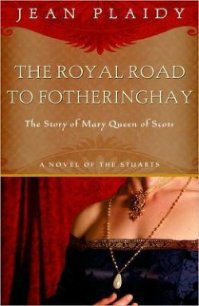The Lion of Justice - Plaidy Jean (книги без регистрации полные версии .txt) 📗
Nor was it.
There they were muttering to themselves—three men, overcome by the intoxication of good strong wine!
There was no time to lose; at any moment, one of these men might be aroused sufficiently from his stupor to know what was happening.
He drew the rope from the cask. He attached one end to the staple near the window. It was a pity it was not nearer, for the drop to the ground was far.
He looked out of the window and a feeling of apprehension overtook him. It was indeed a long drop and he had to rely on the security of the rope attached to the staple.
It was strong and coarse and he had bruised hands merely in tying it.
He let it out of the window, then cautiously clinging to it, lowered himself.
The agony! He had forgotten to ask for gloves. The coarse rope was taking the skin off his hands and they were raw and bleeding. He was dangling at the end of the rope which was far too short, and there remained a long distance between the end of it and the ground.
Fool, he thought. Why had not the brewer sent a longer rope? But the man had sent the longest that would go into the cask.
What now? Was he to wait here dangling at the end of a rope until he was captured? He could not if he wished to. His poor bleeding hands would not endure it.
He must take the risk.
He let go and fell.
Pain enveloped him; he was almost fainting, but he dared not do that. He could see the horse tied to a block a few yards away. His friends had done their part and he must get up. He must forget the pain. He stood.
Yes, he could stand, so it seemed his legs had not been broken.
He staggered to the horse, ready, saddled, waiting.
They had not failed him.
He mounted and galloped off towards the coast.
* * * * *
Geoffrey Count of Conversana had watched the growing friendship between his daughter and Robert of Normandy, and it occurred to him that a match between them would be a good one as far as his daughter was concerned. The Duke of Normandy, if he could regain his lands, was a man of great importance and as there was a possibility that he might be King of England also, the marriage would be a brilliant one for Sibyl.
He found an opportunity of broaching the matter as they sat in his gardens overlooking his vineyards and Robert remarked that it was time he moved on. Not that he necessarily meant it. He had been talking of leaving ever since he came; but there would always be something to detain him—a ball, a banquet, which Sibyl would point out would be spoiled by his absence.
‘Yes, I must depart,’ mused Robert. ‘I have stayed over long.’
‘My lord Duke,’ replied the Count, ‘you could not stay too long under my roof.’
‘You have been a gracious host to me. I shall never forget you...or your delightful daughter.’
‘I wish you all luck in your return to Normandy, my lord.’
‘I need it, Geoffrey. I need it as I rarely needed it before. I have heard that my brother Rufus is dead. Killed in the New Forest as my brother Richard was. And Henry has taken the throne of England.’
‘Has he a right to do this, my lord?’
‘Nay. England should be mine. Rufus and I made a pact that if I died before him I would leave him Normandy and if he died before me he would leave me England. Of course I needed money to make my journey to the Holy Land and I borrowed from Rufus, giving him Normandy as security.’
‘You will redeem Normandy as soon as you return?’
‘I have not the means to do this. Ten thousand marks is the sum I need. I cannot do this. But I shall succeed. I shall not allow my brother Henry to take the throne of England from me. I shall regain Normandy, never fear...and England too...but I need the money if I am honourably to take Normandy out of pawn.’
‘And where will you find this money, my lord?’
‘I have good friends in Normandy.’
‘Your charm and grace have given you good friends wherever you go.’
‘I trust that you are one of them, Count.’
‘My lord, you never had a better and I would be closer than a friend. Let me explain. You need 10,000 marks, the sum for which you put Normandy in pawn to Rufus. I have a marriageable daughter. Her dowry would be 10,000 marks if the Duke of Normandy would be prepared to take her.’
‘My dear good friend! I can think of nothing better. I love your daughter and I venture to think she does not regard me with distaste.’
‘Well then, ‘tis settled.’
‘I will first ask the Lady Sibyl if she will take me.’
‘She will take you, my lord. Her father will insist on that.’
‘I would rather the lady chose me of her own free will.’ He knew that she would do so most gladly. Nor was he disappointed.
Before he left Conversana he and Sibyl were married, and together and by slow stages, being lavishly entertained on the way, they made the journey back to Normandy.
The Chivalry of the Duke
Matilda was happy. The long years of incarceration in the Abbeys of Rumsey and Wilton under the strict rule of Aunt Christina were like an evil dream; yet she often told herself she could never have appreciated her happiness quite so wholeheartedly if she had not been able to contrast it with all that wretchedness.
Henry was a wonderful husband. He was tender and loving and not only this, he quickly realized that she was a woman of unusual education and as he was more learned than most men, this gave them a great deal in common.
He talked to her as though she were one of his ministers and more frankly, for while he must necessarily be on his guard with them, he knew that he never need be with her. She would be loyal in every way.
Henry himself was far from displeased with his marriage. His Matilda was no Nesta but it had not been expected she would be; all the same he very often thought longingly of his one-time mistress and envied Gerald de Windsor. But affairs of state occupied him to the full so perhaps it was as well that he must dispense with the tempestuous, demanding passion he indulged in with Nesta and should be content with the pleasant marital relationship he enjoyed with his wife.
He shared her delight when she became pregnant, and again and again she asked herself what joy there could possibly be in life to compare with bringing a family into the world. Sometimes she was afraid of her happiness. Was Aunt Christina right? Was it sinful to be so happy?
She remembered the vow she had made that if she could but be saved from the veil she would follow the pious habits of her mother.
As it was Lent she went to Westminster Abbey dressed in a shirt of hair cloth—a reminder of the Benedictines robe—and gave alms. At the same time she insisted on washing and kissing the feet of the poor.
On one occasion Henry, who had been unaware of this activity, came to the Abbey with one of his knights while she was engaged on this. He was astonished.
He went to her and cried: ‘Matilda! What are you doing here?’
‘My duty.’ she answered. ‘Will you not join me?’
He shook his head and walked away. She thought he was displeased and this was the first cloud over her happiness.
She was apprehensive when they were alone together.
He said: ‘I had no idea that you performed such deeds.’
‘My mother did and I vowed that if I could escape from the Abbey I would do likewise.’
‘What if there were lepers among them?’
‘My mother washed the feet of lepers.’
He frowned and she asked fearfully: ‘Have I displeased you?’
He took her face in his hands. ‘Nay, nay, ‘twas done from the goodness of your heart and that heart I have learned most gratefully is kind and loving.’
‘I feared greatly that you were angry.’
‘Nay, never with you, my Queen.’
He was thinking: ‘The people were impressed by it and we have great need to impress the people.’




